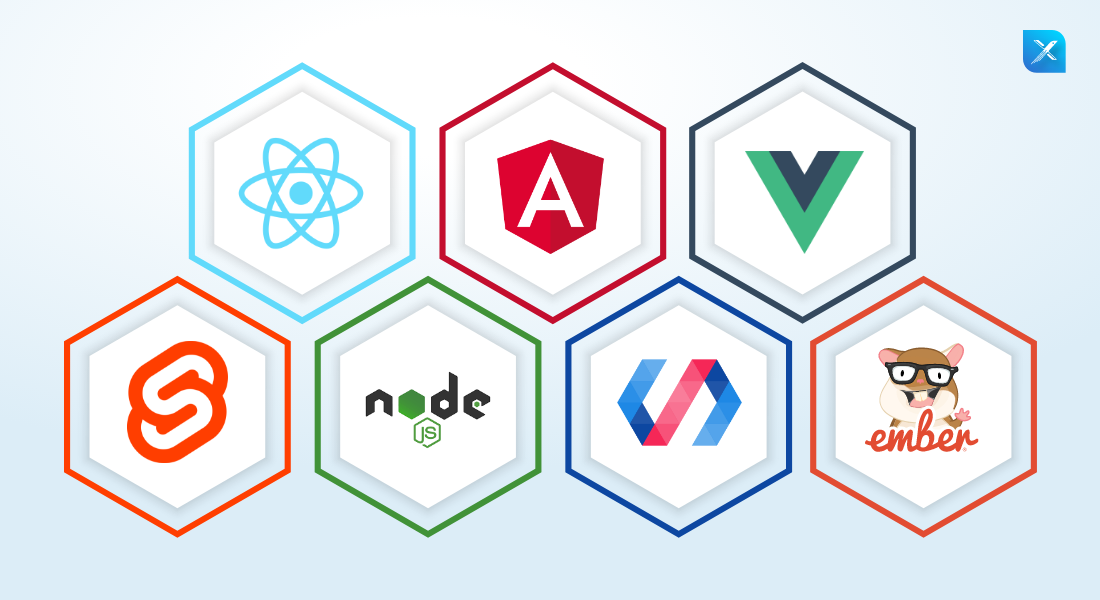Beyond Daily Yonder: Insights and Updates
Exploring daily news and insightful information from various fields.
Frameworks that JavaScript Wish They Could Break Up With
Discover the quirky reasons why JavaScript frameworks wish for a breakup! Uncover the drama in the dev world that every coder can relate to!
The Top 5 JavaScript Frameworks Developers Are Tired Of
In the ever-evolving world of web development, JavaScript frameworks come and go. However, some frameworks have overstayed their welcome, leading to developer fatigue. As far as JavaScript frameworks go, many developers are expressing their frustrations about well-known contenders like Backbone.js and AngularJS. While these frameworks once offered innovative solutions, the rapid advancement of new technologies has left developers feeling constrained by their outdated features and performance issues.
Here are the top 5 JavaScript frameworks that developers are increasingly tired of:
- Backbone.js
- AngularJS
- Ember.js
- jQuery
- Knockout.js
Each of these frameworks has played a significant role in shaping the development landscape, yet many feel they no longer meet the demands of modern web applications, prompting a shift towards more efficient and streamlined solutions.

Why JavaScript Frameworks May Be Holding You Back: A Deep Dive
While JavaScript frameworks like React, Angular, and Vue.js offer powerful tools for developers, they can sometimes become a double-edged sword. One major drawback is that they often introduce a significant amount of complexity to projects. This can lead to longer onboarding times for new developers and increased difficulty in maintaining code. Complex configurations, coupled with the frequent updates and changes in the framework ecosystems, can overwhelm teams that are not prepared for the learning curve. As a result, the very tools meant to enhance productivity can inadvertently stifle it.
Another significant concern is the performance implications that arise from using heavy frameworks. Many developers may not realize that these frameworks include a lot of built-in functionalities that may go unused in their specific projects. This can lead to unnecessarily large application bundles, which not only slow down load times but also negatively impact SEO. In an era where user experience and page speed are crucial, relying heavily on JavaScript frameworks can hinder your ability to rank well in search engines and provide users with a seamless experience.
Are JavaScript Frameworks Causing More Harm Than Good?
In recent years, JavaScript frameworks like React, Angular, and Vue.js have transformed the landscape of web development. While these frameworks offer numerous advantages, such as improved performance and streamlined development processes, some experts argue that they may be causing more harm than good. The increasing reliance on these technologies can lead to overhead in project complexity, making it harder for developers to maintain and scale applications. Furthermore, developers often face a steep learning curve associated with each new framework, diverting their attention from mastering the core principles of JavaScript itself.
Additionally, the rapid evolution of JavaScript frameworks presents another challenge. Developers must continuously adapt to frequent updates and shifts in best practices, which can result in technical debt if not managed properly. As projects evolve, teams may find themselves grappling with outdated frameworks that can hinder progress and innovation. Ultimately, while these tools can enhance productivity and efficiency, it is essential for developers to carefully weigh their benefits against the potential pitfalls, ensuring that they do not compromise the long-term sustainability of their projects.